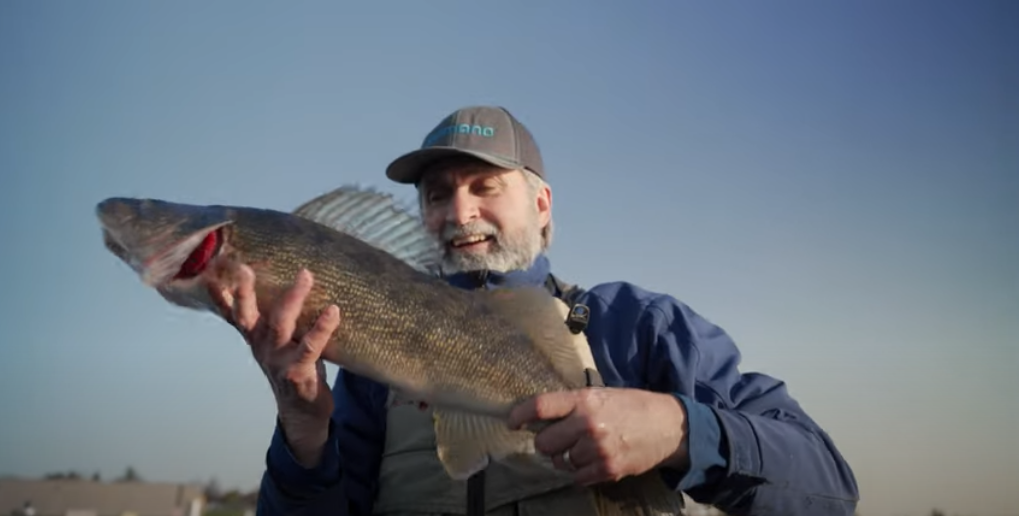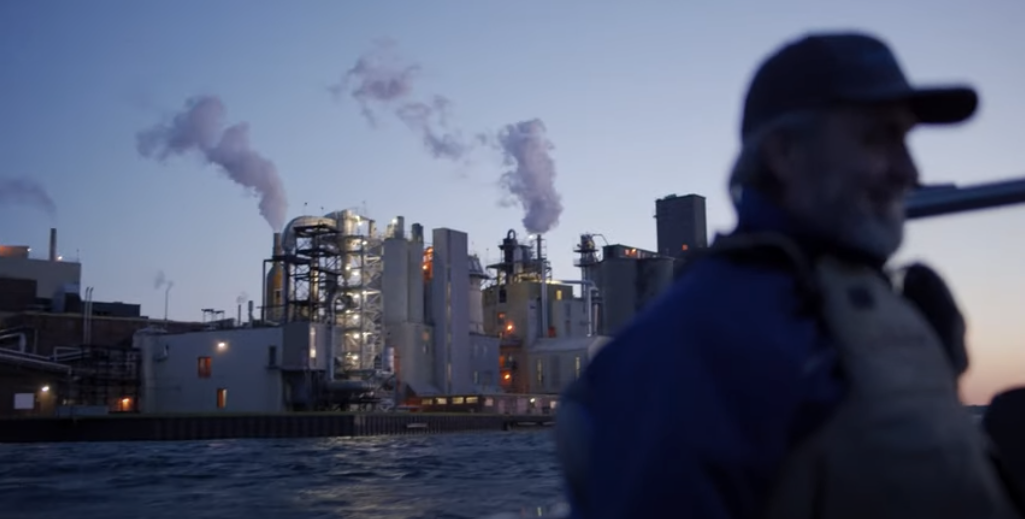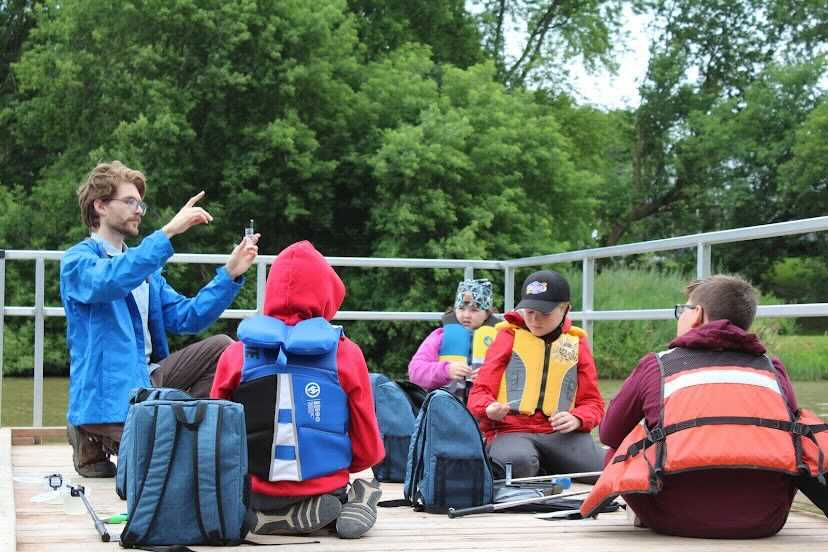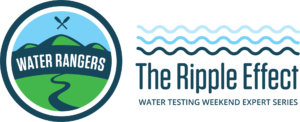Ripple Effect Episode 3: Lawrence Gunther from Blue Fish Canada
Welcome to the May edition of The Ripple Effect! On Water Testing Weekends (the last Sunday of every month), we encourage you to get out and test your local waterways (alternative testing days are Friday, Saturday, and Monday). In celebration of this, “The Ripple Effect,” aka our water testing weekend expert series, aims to shine a light on individuals and organizations who are making a difference in the water world.
When it comes to protecting waterways, community-based water monitoring is often just one piece of an incredible ecosystem of actions. So, we’re recruiting the people who can help us deepen our knowledge and bring us new ideas. They’re community champions, data experts, scientists, knowledge holders, and more. Join us as we learn from these experts and deepen our knowledge of the monitoring ecosystem!
Introducing… Lawrence Gunther and Blue Fish Canada!
May 8th, 2022. It was before dawn; 4am to be exact. Graham, our Science Communication Coordinator, was up early to meet one of our region’s most passionate water protectors: Lawrence Gunther. For ten years, Lawrence has served as president of Blue Fish Canada, a charity he founded dedicated to protecting the health and future of Canada’s water and wild fish stocks.
This was a special day; the third Saturday in May, which marks the opening day of walleye season. There was an excited buzz in the early morning air as anglers returned from their just-past midnight starts.
There’s a giant corn starch factory on the Kaniatarowanenneh (St. Lawrence River) near Cardinal Ontario (it’s here, halfway between Kingston, Ontario, and Montreal, Quebec, on the traditional territory of the Huron-Wendat, Haudenosaunee, and Mohawk people).
This is a prime fishing spot as the walleye here are in abundance. Lawrence told us they’re big and healthy here, but then his expertise kicks in. “Are they really healthy?” Lawrence asks. There are reasons why fish advisories recommend not to eat any fish above a certain size, and only a limited amount per month.
Heavy industrial operations in the region have been dumping their waste in the river for well over 100 years here. A little way downstream of Cardinal is Cornwall, a binational Area of Concern (AOC). This area earned its AOC status because the water quality and environmental health of the river at Cornwall are severely degraded by long-term industrial pollution, shoreline development, and changes to the natural features and water flow. Cleanups of legacy contaminants like mercury and PCBs have been ongoing.

Speaking up for the fish
In spite of the sound, lights, and smell of the starch factory, this doesn’t squelch Lawrence’s excitement, nor that of the other anglers. Lawrence has an incredible wealth of knowledge about fish in Canada. Despite the deep awareness Lawrence has about fish health issues across Canada, you will never meet a more enthusiastic expert. One thing that helps keep him positive is his philosophy when he’s on the water.
Lawrence lost his sight at a young age. For most people, fishing without seeing would be a barrier. Not for Lawrence, though:
I’m a citizen scientist when I’m on the water… When I’m on the water, my world expands. There’s no walls. There’s no ceilings. There is nothing to shut in. What I’m hearing, what I’m sensing, my place in the universe becomes very small. And I understand that I’m just insignificant in this big world.
Learn angler best practices, so that you’re helping protect fish!
All Blue Fish Canada Sustainable Fishing Tips are fact checked by leading fish biologists and expert anglers / guides.
Explore sustainable fishingLawrence is a huge advocate for water health, with a well-known passion for promoting sustainable fishing practices, connecting people to waterways, and prompting people to take action. Blue Fish Canada is a fish charity dedicated to freshwater and marine environment restoration, preservation and conservation, and the promotion of sustainable traditional fish stock management practices. Anglers have a major role to play in environmental stewardship and can learn how to observe water. “They’re always doing it,” Lawrence states. “Anglers are the ones that have the eyes, ears, nose, and anglers are the ones who have that on the water observation ability all the time.”

Anglers take action for water
Well over 3 million Canadians are active anglers. Lawrence attests that anglers care deeply about water quality since they know that fish habitat and spawning all depend on good water quality. Because anglers are out on the water all the time, they notice things like changes in smells, evidence of contamination, and fish who are struggling or suffering.
Over 3 million Canadians are active anglers.
In fact, many water protection movements were started by anglers, Lawrence tells us.
We spoke with Lawrence about the major ‘fish kill’ that happened on the Ottawa River two years ago. He spoke with the Ottawa Riverkeeper about it after it happened, who were notified through their pollution hotline. “If the anglers hadn’t been there to observe thousands of dead fish floating down the river, we never would have known the source of the contamination that killed those fish.”
The current carries the evidence [of fish kills] away. And then who do you blame for that? Who even knew it happened if it wasn’t for anglers identifying that?
There is momentum amongst anglers to take action because they also want to make sure that the fish they catch is safe to eat by their families and their communities.
That’s something that Water Rangers has seen first hand, as many of our most dedicated and consistent water testers are also anglers. They want to know about variables that are important to fish such as water flow, spawning habitat, and shorelines, and what our testkit tests, such as water clarity, oxygen, conductivity, temperature, and pH. Supporting anglers to become better citizen scientists, with tools to document observation, collect water samples, and report that information is something Lawrence is excited to see happen.
We live along shorelines. We cluster and gather along shorelines for transportation, for water, for food, because that’s where it happens. That’s where life takes place. Climate change is changing that. Our disrespect of the shoreline is changing that.
Hope for our future
Lawrence’s work celebrating fishing and sustainability is reaching the younger generations. Blue Fish Canada’s objectives include programs that provide opportunities for youth to get on the water, learn about fish and their environment, explore shorelines, and reconnect with nature. All of this is part of Lawrence’s own gentle and holistic approach to finding joy and connection with water.
Children need to be on shorelines. We know that. We know from top psychiatrists and experts in sociology that the development of a child is linked to shorelines. That’s where life begins, where two worlds meet the wet world, the water world, and the terrestrial world. There’s a microcosm of life right there that children explore and understand and learn about nature.

What’s next?
Water Rangers’ water quality testkits help communities collect important information about water quality health. We’re planning on working with Lawrence and Blue Fish Canada to develop a water quality testkit that serves anglers and fish protectors. Stay tuned!
Plunge deeper with Blue Fish Canada!
- Listen to Blue Fish Radio where Lawrence interviews water and fish experts
- Learn about Blue Fish Canada’s youth engagement
- Become Blue Fish Certified in sustainable fishing practices
- Sign up to receive Blue Fish Canada news
- Donate to support Blue Fish Canada in continuing their important work!
Previous episodes of the Ripple Effect
- In April, we featured Annie Michaud from Niagara College
- In March, we featured Simon Bleach and Alistair Young from the River Wey Trust
- Follow us on Twitter, Instagram, and Facebook when we release the next one!
Thank you to the National Research Council for helping to fund Water Testing Weekends and this expert series.

